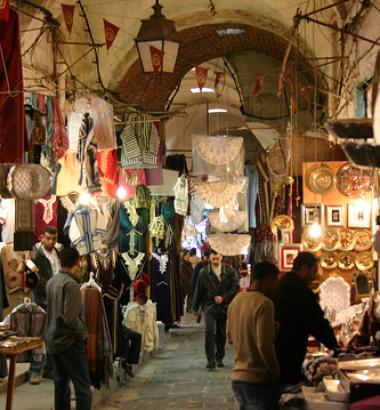With my (terrific) internship at The Wilson Quarterly behind me, I am about to set off for a semester of research and cultural and linguistic immersion in Tunisia, joining thousands of other young Americans who are traveling to the Middle East and North Africa for similar reasons.
Just as the Cold War spurred an increase in Russian language study, the 9/11 attacks and the two wars that followed have led more and more students to focus on the Middle East. Good data are hard to come by, but according to the
Institute for International Education, the number of American students studying in Arabic-speaking countries soared 600 percent between 2002 and 2007, to more than 3,000. On U.S. campuses, enrollment in Arabic classes more than doubled by 2005.
The rise of Arabic language and cultural studies has two key sources: the federal government’s practical focus on promoting it and my generation’s inherent interest in cross-cultural awareness. After 9/11 and the beginning of the wars in Afghanistan and Iraq, the State Department had fewer than 60 employees who were completely fluent in Arabic, and only five were considered up to the job of representing the United States on television programs in the Middle East. Now the State Department is channeling money into a new effort to increase undergraduate instruction in 13 languages, the
Critical Language Scholarship Program. In the Middle East, it offers summer programs in Jordan, Egypt, Oman, Morocco, and Tunisia. Arabic is one of the tougher languages to learn. "It's easier to train someone to fly an F-14 than. . . to speak Arabic," one specialist told the Associated Press.
For me, the semester in Tunisia is an opportunity not only to strengthen my language skills but to immerse myself in another community and culture. While many adults in my life question my decision to travel to the Middle East and ask why I can’t go somewhere “normal like England or France,” I’m sure of my choices and excited at the prospect pushing myself into an entirely new environment. My generation has seen firsthand the necessity of cross-cultural understanding, and that can only go so far without understanding one another’s languages. By going abroad and focusing on a critical language, we hope to one day change the way America deals with the Middle East and change the conversation from one filled with cold, hard facts and bureaucracy into one with the basis in mutual understanding and respect.
